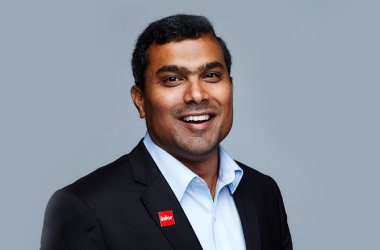History will tell you that Infor road show events usually follow a particular trend – the company announces a major change in strategy each year and its employees and partners can expect progression within the 12 months that follow. You can then imagine the relief and joy when former Wall Street analyst and Oracle Co-President, Charles Phillips, took to the stage in Paris this month and declared that Infor had great news to share – progression through strategy.
Phillips is closing in on his second year as CEO at Infor, following the switch from competitors Oracle in 2010. Phillips brought with him a close and trusted team and together they set about constructing a full and future proof strategy for growth. Although the first 12 months were relatively quiet, things kicked into gear during the second term and Infor is showing an incredible rate of growth and progression in global markets.
“We’re making aggressive investments and showing solid growth,” says Phillips. “This is reflective in our product line, and we are showing good signs for the next few years.”
Infor has recently recorded yearly revenue of $2.8 Billion, 2300 new customers, 140 new key partners, now making up a partner base of 1500, and 1700 new employees, equating to a staff base of 13,000, making them the third largest business applications company worldwide.
Phillips believes that the major differentiator that separates Infor from its competitors is the fact that it doesn’t have any across-the-board solution, but instead focuses on specialising individual network solutions for each vertical.
“We have a far broader product portfolio than people realise, we want them to see the breadth of that” he says. “Our footprint is complete. We’re covered in so many sectors such as financials, hospitality, HR, asset management, etc, and we have specialised solutions and product portfolios for each of them.”
Phillips says that following a long period of consolidation, which all businesses went through, including Oracle during his time there, Infor has now made the decision to move into a more product focused area.
“Becoming more focused on innovation of products and applications was the crucial next step for us. We’ve been doing that for the last two years. We came in and immediately hired about 600 new engineers and this year added 400 more, so in a short time we added about 1000 developers, becoming one of the world’s largest developer companies in the world, dedicated to business applications.”
The result of all this, Phillips says, is the next generation integration platform which it has produced. Infor, being a fairly new company, had the advantage of being able to adopt new technologies more easily and adjust to market shifts which would be a much longer process for companies such as Oracle and SAP.
“We have an internet based integration platform which is exponentially simpler than traditional middleware and for our purposes we think that’s better. This system will require far fewer checks, which is obviously a good thing because all application integrations are complicated, so simplifying that is a positive move. The major problem for application integration is that when you change one thing, 500 other things break, but we’ve solved that now,” he says.
According to Phillips, the benefits of ION, the integration platform, are that upgrades and changes to singular applications don’t affect other applications and reports. As the infrastructure is no longer embedded in the application, it means faster integration and simplified middleware, resulting in a more simple way to innovate products.
“The way you solve this problem is by being loosely coupled. It’s the same way the internet works, it’s all HML based, XML based, it’s loose linking. So when three websites go down, the whole internet doesn’t go down. We’ve done the same thing now, our applications publish XML – it’s a unique architecture but it’s highly appropriate for business applications.”
Phillips describes this era as the internet era. This follows on from two previous eras which he described as the point era, starting around 1980, which used best of breed applications and relied on businesses being fully responsible for integration of applications. Following this, came the monolithic era around 1995, which brought the addition of components and replacing suite components. Now he believes we are in the internet era.
The innovation and progress will benefit the Middle East as well, according to Mike Hibbert, Channel Manager, MENA, Infor. Hibbert claims that he has been pushing for Infor to invest more heavily in this region and that time is finally come.
“We have some key partners in this region, it’s fast emerging, it’s adoptive and it’s willing to invest – that’s huge for us,” he says.
“We don’t have many people on the ground here, and that’s what we’ve decided to change. The major problem with this region, in relation to not having local support for our partners, is the work days. If a partner has a problem which they’re unable to solve and it’s a Saturday, for example, we wouldn’t be available to help them until Monday at the earliest. That’s a third into the working week.”
Hibbert says that Infor has big plans for the region and that evidence of that can be seen now. Major renovations are currently being made to the Dubai based office to accommodate the new work force which will move in soon and be solely dedicated to assisting the regional partners here.
“Infor has had a fantastic couple of years, and the Middle East has played a major part in that.It’s about time we put more people on the ground here and supported them to show our dedication to the region,” he concluded.





